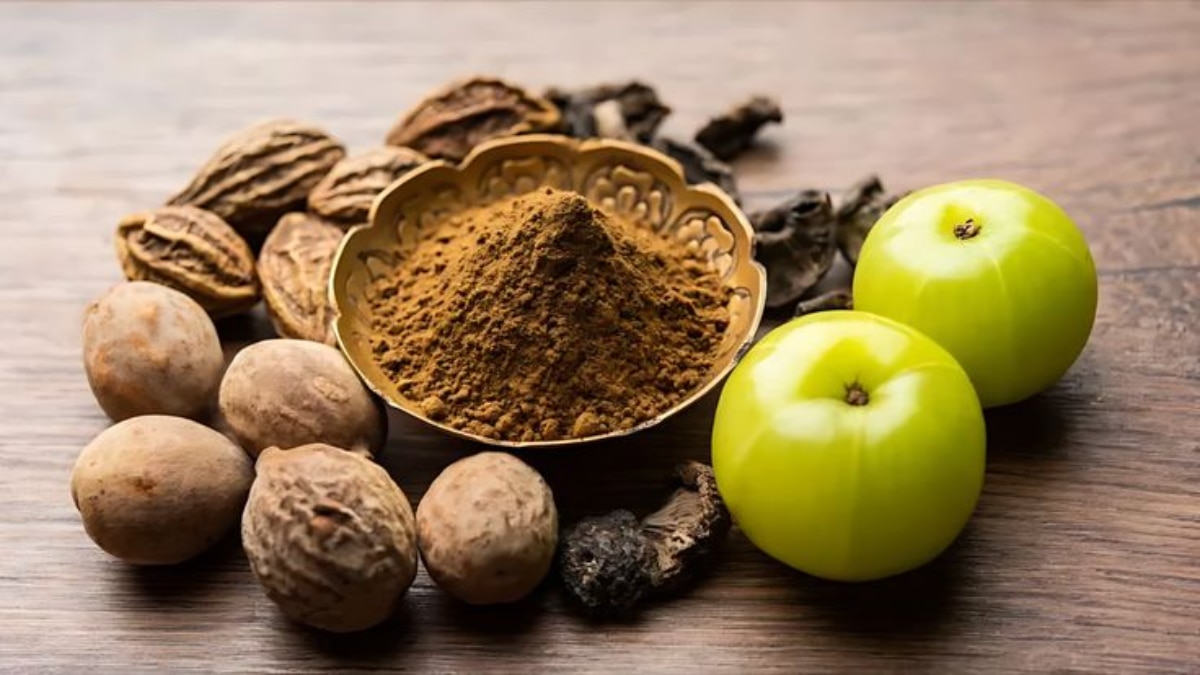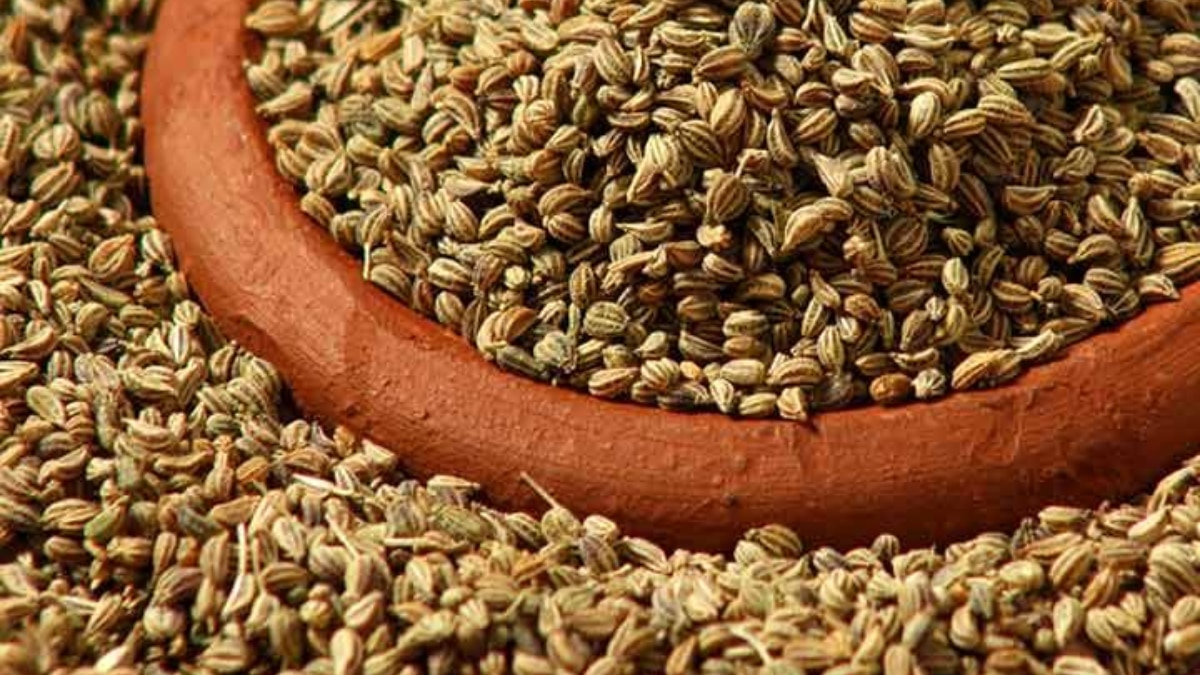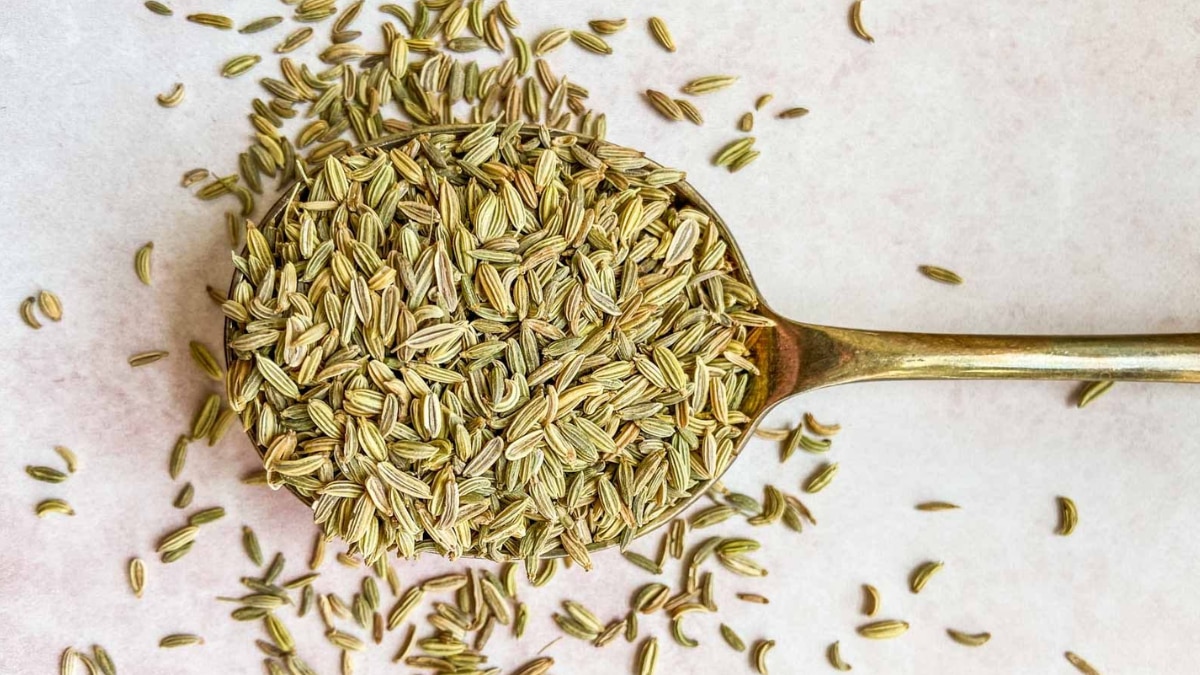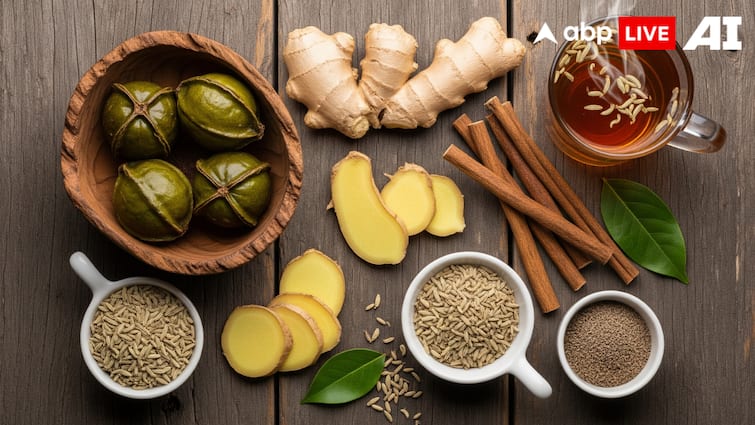Good digestion is the foundation of overall health in Ayurveda. When your digestive fire, or Agni, is balanced, nutrients are absorbed efficiently, toxins are eliminated, and your body feels lighter. But modern lifestyles, irregular eating habits, and stress often leads to digestive troubles such as bloating, acidity, constipation, or slugging metabolism.
Ayurveda suggests turning to herbs instead of solely relying on chemical-based medicines. These herbs not only soothe the stomach but also improve nutrient absorption, regulate bowel movements, and restore balance to the digestive system.
Let’s look at five time-tested herbs that can transform your digestion and help you feel healthier from within.
ALSO READ: Is Your Liver Overloaded? 6 Signs It Needs A Detox
1. Triphala

Triphala is a blend of Amalaki, Bibhitaki, and Haritaki. Known as a natural detoxifier, Triphala works by cleansing the digestive tract gently without causing dependency or irritation. It improves bowel regularity, reduces bloating, and calms acidity, while balancing the digestive fire. Amalaki provides vitamin C and strengthens the stomach lining, Bibhitaki clears mucus and toxins, and Haritaki supports intestinal strength. When taken regularly, Triphala enhances nutrient absorption, leaving you feeling more energetic.
2. Ajwain

Ajwain, or carom seeds, is a common kitchen spice that holds a special place in Ayurveda for its powerful digestive benefits. The seeds are rich in thymol, a compound that boosts gastric juice secretion, helping the stomach break down food efficiently. It’s used to relieve indigestion, flatulence, and stomach cramps. Beyond aiding digestion, Ajwain also combats acidity and strengthens the body’s metabolism. In traditional households, ajwain water is given to soothe stomach discomfort, while roasted seeds with a pinch of black salt work wonders for bloating.
3. Ginger

Ginger, or Adrak, is often called a universal medicine in Ayurveda because of its wide-ranging health benefits. It has a warming nature that makes it ideal for stimulating Agni, which is essential for breaking down food. Ginger helps reduce bloating, nausea, and indigestion while also improving circulation in the digestive tract. The herb also helps relax intestinal muscles, making it beneficial for people with irritable bowel discomfort. It’s not only about calming the stomach but also about strengthening it.
4. Fennel Seeds

Fennel seeds are often chewed after meals for their refreshing flavour and digestive properties. In Ayurveda, fennel is regarded as a cooling herb, which makes it especially useful for calming excess heat in the stomach, reducing acidity, and soothing heartburn. Its mild yet effective carminative properties help ease bloating and gas, making you feel lighter after meals. Fennel seeds also support the liver’s function, which plays a key role in digestion and detoxification. The natural oils in fennel, like anethole, relax the stomach muscles and enhance the movement of food through the digestive tract.
5. Licorice Root

Licorice root, called Mulethi in Ayurveda, is highly valued for its soothing effect on the stomach and intestines. It helps form a protective coating on the stomach lining, making it an excellent remedy for acidity, ulcers, and gastritis. It heals irritated tissues and reduces inflammation in the gut. It has a natural sweetness that balances excess stomach acid and improves overall digestive strength. Mulethi is also known to regulate bowel movements and enhance the absorption of nutrients.
Check out below Health Tools-
Calculate The Age Through Age Calculator



